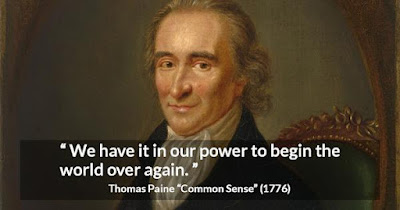Let me state that first and foremost that I am a Pacifist. I don't believe in violence in any way, shape or form nor do I believe that violent actions are ever justified.
That being said I was reading an opinion piece on an environmentalist discussion board calling for more direct - and confrontational - action concerning climate change and social justice.
I can understand the writer's comments and their frustration. That being said I personally cannot condone or support any act of violence in the name of ecology or social justice (or any other cause for that matter). That's just my personal belief that any violence just begets more violence...and that solves nothing.
I may have been reading to much into it or supplanting my own fears and anxiety onto the author of the original piece I do feel it's an idea worth commenting on however because the solutions needed are complex and intertwined and frankly require more than slap dash attempts at "policy."
Basically their argument was a simple one. We have only so much time before things get worse. The governments of the world have little incentive to change because the current system benefits the upper classes, etc. They are not wrong on that point.
Nor are they wrong about the time frame. Things are not going to get any easier in the next 30 - 50 years depending on what study you're looking at. I'll either be an old man or dead by that time, so I have only a limited time to do my small part to help secure a brighter future for the majority of people.
The more I learn about efforts to create food forests or turn yards into gardens the more I'm impressed by the community as a whole. These are not radical ideas, but they feel that way because it flies in the face of everything that we have been taught, directly or indirectly, all of our lives. In many ways it is a form of art; it is a form of resistance.
The direct actions of so called "Guerrilla Gardner's" are harmless and make some very good points about urban and public spaces. The act of starting a community garden in an abandoned lot is not only good for that community, but the environment and emotional health of that community.
Directly across from my house for example is a large green yard with very little in the way of trees or plants that I feel should be converted into workable farm land. It's basically a "dead meadow." It's devoid of flowers and trees. I don't think I've seen a single dandelion growing there either.
I can't help but wonder what I would do- what I can do - to allow it to return to a meadow. Probably something like I did with my own property. Only this is not my property.
Do I have the right to say something to them about what I see as a dead lifeless space but they see as a green and pretty yard?
The author of the original piece would argue that I do. That I have a moral obligation to try and change the mind of that property owner to plant trees and allow native plants to grow there. To cut back or eliminate pesticides that they may be using on their lawn
The problem they argued, and on this I do agree, is that even if I had this conversation, it would do little to change the environment overall. It's a small step however in the right direction.
If you get enough people moving in the right direction...then change, real lasting change can occur. It will always be met with resistance, but progress tends to move in the direction that benefits the most people.
While the author of this little piece didn't come out and state it, he or she was talking about acts of eco-terrorism and other forms of action to bring about much needed environmental policy changes.
Again, I find that they are not wrong.
Frankly history is full of violent actions to bring about change. These are often small acts of desperation when the indivdual feels that they simply have no other choice. At first they are seen as radicals but given enough time and if the situation continues to decline...they become the majority. Violence ends up becoming acceptable to the majority.
As a student of history I know that Thomas Payne, one of the first people to call for the American Revolution, was considered a radical in his time. Much of what he wrote about - freedom from slavery, the equality of and allowing woman to vote, the redistribution of wealth were considered radical during his time....yet oddly prophetic of the changes that were to come. Those changes occurred over a course of 100 + years and are even occurring today as we argue over what, if any, rights a woman has over her own body, the separation of Church and State and a whole other bunch of issues.We simply do not have 100+ years to wait.
Utopia will not occur tomorrow. There is no utopia to be had, because hard times are always occurring for those that are living in those times. While I find myself with renewed hope for the future, I still worry that as the skies grow darker that the radical will have their day. While that violence may spur much needed change I fear it is a cycle that we will never break.



Comments
Post a Comment